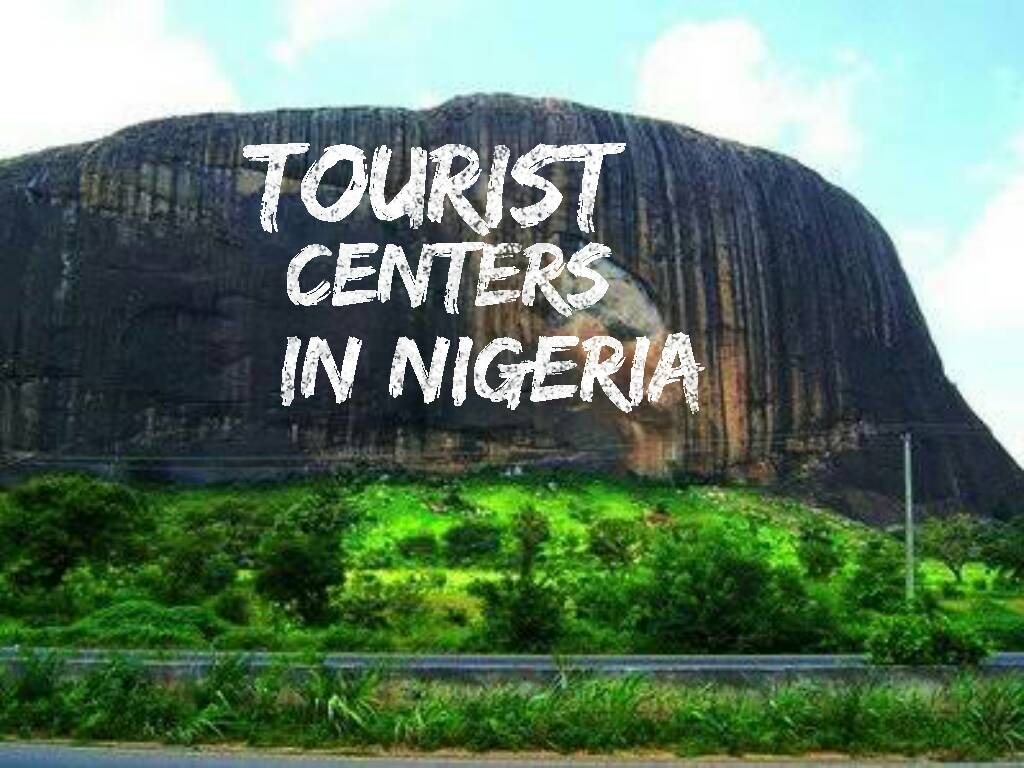
Nigeria, the most populous country in Africa, is a vibrant and diverse tourist destination that offers a blend of rich history, cultural heritage, natural beauty, and modern urban experiences. From bustling cities to serene landscapes, Nigeria provides a variety of attractions that appeal to travelers seeking unique adventures.
1. Historical and Cultural Sites Nigeria is home to numerous historical landmarks and cultural experiences, reflecting its deep-rooted traditions and past. Lagos: As the economic hub of Nigeria, Lagos is a lively metropolis known for its beaches, nightlife, and cultural scenes. Popular spots include: Lekki Conservation Centre: A nature reserve where visitors can walk along Africa’s longest canopy walkway and spot wildlife. Nike Art Gallery: A contemporary art gallery showcasing Nigerian art, textiles, and sculptures. Freedom Park: Once a colonial-era prison, now a beautiful park and cultural center, often hosting music and arts festivals. Benin City: Famous for its rich history and role as the heart of the ancient Benin Kingdom, visitors can explore: National Museum of Benin: Featuring Benin Bronzes, a collection of famous metal plaques and sculptures with intricate designs, highlighting the city’s role in art and trade. Sukur Cultural Landscape: A UNESCO World Heritage site, the Sukur kingdom offers insight into ancient African kingdoms. Visitors can hike to see terraced fields, stone palaces, and the traditional ways of the local Hidi people. Osun-Osogbo Sacred Grove: A UNESCO World Heritage site and sacred forest along the banks of the Osun River. It is home to shrines, sculptures, and artworks dedicated to Osun, the Yoruba goddess of fertility. 2. Natural Attractions Nigeria’s landscapes range from waterfalls and mountains to national parks that showcase the country’s biodiversity. Yankari National Park: Located in Bauchi State, Yankari is one of Nigeria’s most popular wildlife reserves. The park is home to elephants, lions, buffalo, and hippos. The Wikki Warm Spring in the park is a highlight, where visitors can swim in the warm, clear waters. Obudu Mountain Resort: Tucked away in the southeastern part of the country, Obudu offers stunning mountain views, cool temperatures, and activities like hiking, cable car rides, and visiting the canopy walkway. The resort’s lush environment makes it ideal for relaxation and adventure. Erin Ijesha Waterfalls (Olumirin Waterfalls): This multi-tiered waterfall located in Osun State is a popular destination for hiking, swimming, and picnicking. The surrounding greenery and cool ambiance provide a refreshing escape. Aso Rock: One of Nigeria's most iconic natural landmarks, this massive monolith in Abuja stands 400 meters tall. It offers scenic views of Nigeria’s capital and is home to the Aso Villa, the country’s presidential residence. Gurara Falls: Located in Niger State, Gurara Falls is a spectacular waterfall that draws visitors for picnics, photography, and swimming, especially during the rainy season when the falls are at their peak. 3. Cultural Festivals and Traditions Nigeria’s rich cultural diversity is reflected in its numerous festivals, which celebrate the country's ethnic groups, music, and traditions. Eyo Festival (Lagos): Known for its colorful masquerades and processions, the Eyo Festival is a Yoruba cultural celebration held in Lagos. It is a vibrant event featuring dancers dressed in white flowing robes, symbolizing spirits. Durbar Festival (Kano, Katsina): A grand display of Nigerian horsemanship, the Durbar Festival is a procession of horses, riders, and drummers dressed in traditional regalia. Held to mark Islamic holidays, it is a colorful and impressive sight to behold. Calabar Carnival: Often referred to as “Africa’s Biggest Street Party,” this annual carnival in Calabar, Cross River State, is a month-long festival of dance, music, colorful parades, and costumes. It draws tourists from across the globe for its energetic atmosphere. 4. Beaches and Coastal Attractions Nigeria's Atlantic coastline offers beautiful beaches, ideal for relaxation and water activities. Tarkwa Bay Beach (Lagos): One of the most popular beaches in Lagos, accessible by boat. Tarkwa Bay is great for swimming, water sports, and enjoying the views of the Lagos skyline. Elegushi Beach: A lively beach known for its nightlife, food vendors, and beach parties. It’s a hotspot for locals and tourists looking to experience Lagos' vibrant coastal scene. La Campagne Tropicana: Located along the Lekki-Epe expressway, this resort offers a blend of African culture and luxurious beachfront relaxation. Visitors can enjoy kayaking, horse riding, fishing, and cultural shows. 5. Modern Urban Experiences Nigeria’s cities, especially Lagos and Abuja, are buzzing centers of commerce and entertainment. Lagos Island and Victoria Island: These upscale districts in Lagos are known for their luxury hotels, shopping malls, restaurants, and nightlife. Victoria Island is particularly popular for tourists seeking a cosmopolitan experience. Abuja: Nigeria’s capital, Abuja, is a modern city with notable attractions like: Millennium Park: The largest public park in Abuja, ideal for picnics and outdoor activities. Abuja National Mosque: A stunning mosque and one of the city's architectural highlights. Jabi Lake: A beautiful artificial lake where visitors can enjoy boat rides, lakeside dining, and shopping at the nearby Jabi Lake Mall. 6. Cuisine Nigerian cuisine is flavorful and diverse, with regional specialties that reflect the country’s cultural diversity. Must-try dishes include: Jollof Rice: A spicy, one-pot dish made with rice, tomatoes, and a mix of spices, often accompanied by grilled meats or fish. Pounded Yam and Egusi Soup: A traditional Yoruba dish made from mashed yam served with a thick soup of melon seeds, vegetables, and meat. Suya: Grilled meat skewers seasoned with spicy peanut powder, commonly found at roadside grills and markets. 7. Best Time to Visit Dry Season (November to March): This is the best time for wildlife safaris, beach visits, and exploring outdoor attractions, as the weather is cooler and drier. Wet Season (April to October): This period brings lush greenery and is great for waterfalls and birdwatching, though some roads may become less accessible due to heavy rains
| Destination | Cambodia |
|---|---|
| Locations | The stone |
| Tour Duration | 8 Days |
| Attraction | Angkor Wat Heritage Site visit |